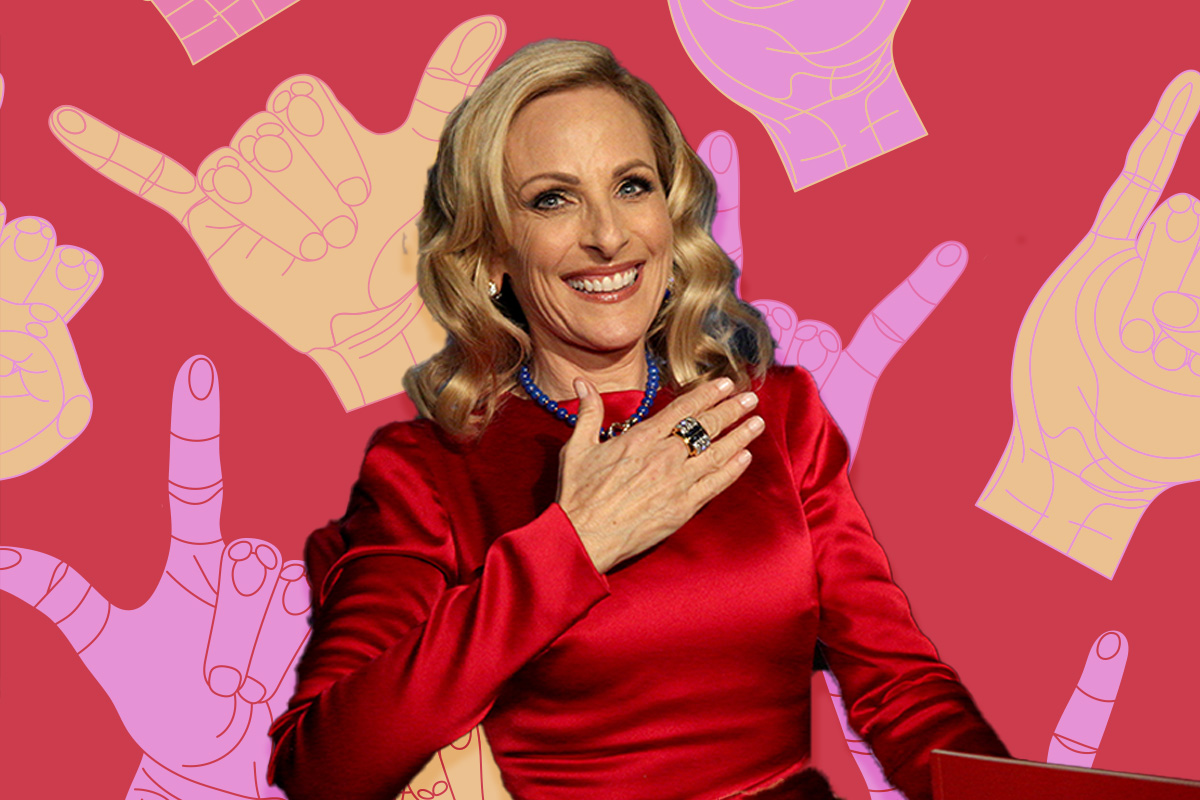The Oscars ceremony this year was perhaps the most memorable since the “La La Land”/“Moonlight” mishap in 2017. But the most memorable part for many in the Deaf and Hard-of-Hearing community was the success of Apple TV+’s film “CODA” — a film about a Deaf family and their daughter who is a CODA, or a child of a Deaf adult. In total, the film won three Oscars for Best Supporting Actor, Best Adapted Screenplay and Best Picture.
And it was historic.
Not only is “CODA” the first film with a primarily Deaf cast to win an Oscar for Best Picture, but it is also the first time another Deaf actor has won an Oscar since 1987. Troy Kotsur won for Best Supporting Actor in “CODA,” making history as the second Deaf actor and first Deaf man to win an Oscar for acting. The first was Kotsur’s “CODA” co-star Marlee Matlin for “Children of a Lesser God.”
Even though Matlin did not personally get nominated for an Oscar this year, both of her films “CODA” and “Children of a Lesser God” are representative of a blossoming era of inclusion where the mainstream media acknowledges and appreciates Deaf stories. And Matlin has always been on the forefront, making her not only a skilled Deaf actress, but a revolutionary actress.
Also, she’s Jewish!
When I first learned Matlin was Jewish I was so proud to have her as a member of the tribe. From her theatrical talent to the role she played in my exposure to Deaf culture, I had always admired her. Though I am hearing, I spent years learning American Sign Language (ASL) in school. When I sought to watch television or movies in ASL, her hands were often the ones I saw. Simply put, Marlee Matlin was — and still is — the face of ASL. And the fact that such an iconic Deaf figure is also Jewish makes me so proud and happy.
The more I learned about Matlin’s Jewish upbringing, the more I was impressed. Though her Jewishness is mentioned less regularly than her Deafness, I believe her connection to Judaism is just as inherent to who she is. A quick Wikipedia search reveals that she attended a Deaf synagogue and signed her Torah portion during her bat mitzvah. In my own experience with synagogues and b-mitzvahs, I have never once seen an interpreter. There could be numerous reasons for this, but, at the end of the day, it paints a bleak picture: Many synagogues are not inclusive enough.
Though there have been many efforts to increase inclusivity in the Jewish community worldwide, disability is often excluded from these efforts — and I cannot understand why. In the Deaf and Hard-of-Hearing community, a service at a synagogue is not accessible at all without an interpreter.
With the recent attention rightfully allotted to “CODA,” I hope the audience sees the true purpose of the film. Yes, it is crucial to feature and enjoy Deaf stories told by Deaf people, but all hearing people should be doing more than this: We also need to evaluate our own communities.
We should be asking ourselves: How can we be better allies to the Deaf community? This question should extend to every person, regardless of their background. It is every Jew’s responsibility to reach out a hand to the Deaf community. Perhaps this can be done in synagogues by interpreting all services — not just for the Deaf community already attending services, but to make an environment comfortable and accepting for future Deaf families. Or perhaps this can be done through teaching relevant signs in Jewish day schools and Hebrew schools, thus increasing awareness of and familiarity with Deaf culture in hearing children as well.
As awareness of Deaf culture grows thanks to films like “CODA,” I hope the Jewish community and all other hearing people remember that being Deaf or Hard-or-Hearing is a fundamentally intersectional identity, as there are Deaf Jews, Deaf children, Deaf immigrants and so on. Every community should internalize the importance of not just listening to our Deaf friends and family but uplifting them.
Films like “CODA” are just the beginning, and we can carry on its message in our everyday lives. And while I love the indisputably most famous Deaf Jewish actress in history, Marlee Matlin, we should not put all our hopes for the future on her. Every single person has the ability and responsibility to improve the lives of Deaf people in their community. But it is more than just that. We have the responsibility of making Deaf stories mainstream. Until Deaf people are viewed like any other person — that is, not “othered” for their deafness — Matlin, Kotsur and “CODA” director Sian Heder’s message will not come true. The work may have begun with the creative efforts behind “CODA,” but it must continue with us.
So thank you, Marlee Matlin. You have helped inspire yet another generation with your work in the film “CODA.” I admire all your efforts in film and television to shed light on the Deaf community and the beauty of ASL. I will even gladly dub you the quintessential Deaf Jewish actress.
But I think the best way we can thank you is by continuing your message in our own lives.



